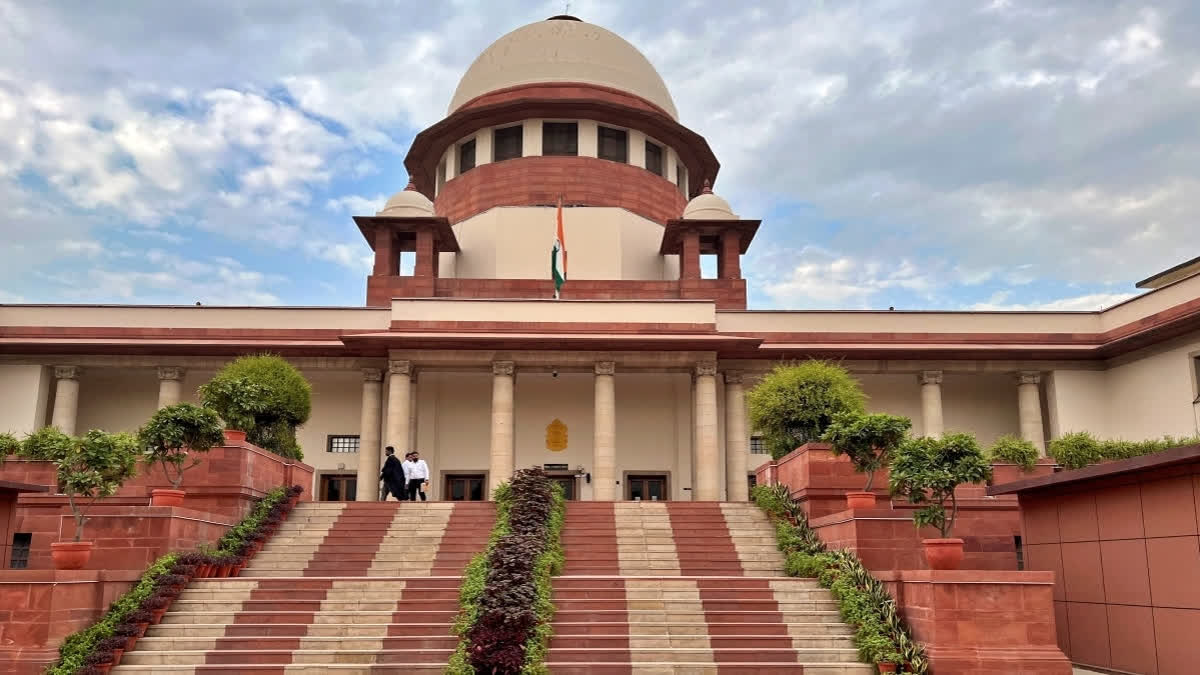New Delhi: The Supreme Court has held that a person with Scheduled Tribe (ST) status in one state cannot claim the same benefit in another state or Union Territory (UT), where the tribe is not notified as ST.
A bench comprising Justices B V Nagarathna and Augustine George Masih said: “A person claiming benefit having regard to his status as a ST in a state, when he migrates to a UT where a presidential order has not been issued at all insofar ST is concerned”. “Or, even if such a notification is issued, such an identical ST does not find a place in such a notification, the person cannot claim his status on the basis of his being noted as a ST in the state of his origin," the bench held in a judgment delivered on February 7.
The bench said in the instant case that merely because the Chandigarh Housing Board had issued a notification calling for applications from both Scheduled Castes (SC) and ST, it did not confer any benefit by that notification on the respondent. “When there is no presidential order at all under Article 342 of the Constitution of India issued with regard to STs insofar as UT of Chandigarh is concerned”, said the bench.
The bench said presidential notification of a tribe or tribal community as a ST under Article 342 is necessary for extending any benefits to the said community in any state or U.T. “This implies that a person belonging to a group that is recognized as a Scheduled Tribe in a State would be recognized as a Scheduled Tribe only within the said State and not in a U.T. where he migrates if no such Presidential notification exists in the said U.T”, said the bench.
The Chandigarh Housing Board had called for applications by advertisement dated June 28, 1983, for allotment of houses exclusively for SCs and STs and a total of 35 houses in the HIG (upper) and HIG (lower) categories were reserved for that purpose. One of the conditions required for the applicants was that they should be a domicile of the UT of Chandigarh or have been a resident for at least three years on the application's submission date.
Tarsem Lal, one of the applicants, submitted his application and the result of the draw of lots was published in September 1983. Lal was not allotted the house. Lal said he belongs to the Scheduled Tribes community as recognized in the state of Rajasthan, his state of origin, and had been permanently residing in Chandigarh for twenty years. Lal moved the civil court, which ruled in his favour. The housing board moved the Punjab and Haryana High Court, which dismissed its plea. The housing board filed an appeal in the apex court challenging the high court order.
The apex court arriving at a conclusion relied on Marri Chandra Shekhar Rao vs. Dean, Seth G. S. Medical College (1990). “Constitutional right, e.g., it has been argued that right to migration or right to move from one part to another is a right given to all — to Scheduled Castes or Tribes and to non-scheduled castes or tribes. But when a Scheduled Caste or Tribe migrates, there is no inhibition in migrating but when he migrates, he does not and cannot carry any special rights or privileges attributed to him or granted to him in the original State specified for that State or area or part thereof”, said one of the paragraphs from the judgment.
The apex court said the housing board erroneously issued the advertisement inviting applications for allotment of houses from both Scheduled Castes as well as Scheduled Tribes persons because no such reservation for Scheduled Tribes could have been made without strict compliance with Article 342. “The effect of the finding that the advertisement was issued without necessary jurisdiction and authority would lead to the setting aside of the impugned judgment and decrees on that ground alone”, said the bench.
Allowing the appeal, the apex court said: “we find that the impugned judgment of the High Court affirming the judgment of the First Appellate Court, which in turn affirms the judgment of the Trial Court are all liable to be set aside and are hence set aside.”
- " class="align-text-top noRightClick twitterSection" data="">
Read More



